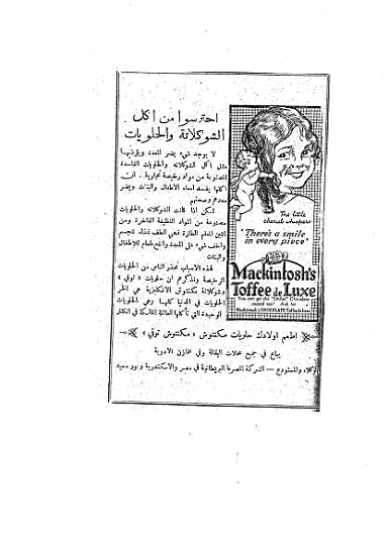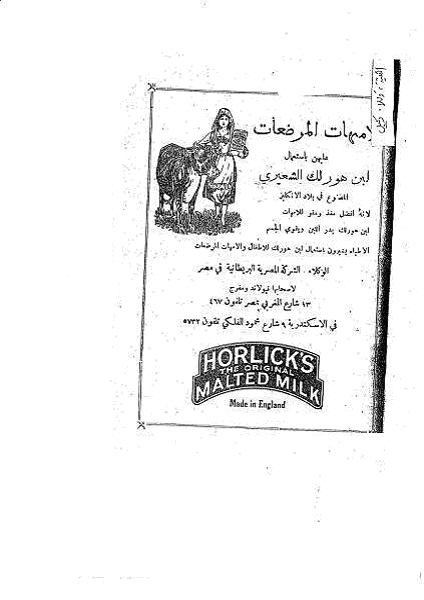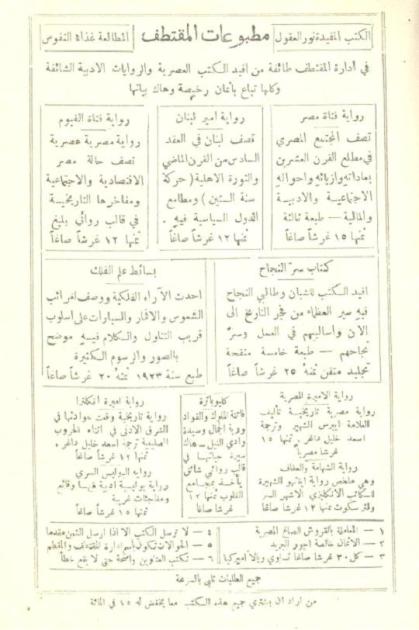The Foundation and dissemination of an Arab Scientific Review
The two founders, inspired by the achievements of Butrus al-Bustani[1] and Nasif al-Yaziji[2], managed to get permission to print at a juncture of temporary liberalisation of the regime. The first issue of Al Muqtataf came out in Beirut in early May 1876. The front page provided the following data: “Al Muqtataf, scientific and industrial journal”, the names of its founders, the year, the subscription cost (7 francs in Beirut and Lebanon, 8 francs abroad). Its logo was a pen crossed with a hammer and it was to appear monthly at the beginning of every month. Having transferred to Egypt in 1888, the review also offered some documentary data in English: “Al Muqtataf. An Arabic monthly Review. Founded in 1876 by Drs Y. Sarruf & F. Nimr”. The volume number also figured along with the month and the year. Once established on the banks of the Nile, the publication no longer had to deal with censorship, quite the reverse: it enjoyed the full approval of the British authorities who had imposed a de facto protectorate over Egypt. It also had access to a more effective typographic technology and reached a broader public in spite of the reservations expressed among Egyptian nationalist groupings. Yakub Sarruf became the chief editor of the publication a position he held up to his death. He drafted most of the articles even those that were not signed. His nephew Fuad Sarruf[3] would shoulder the same responsibilities between 1927 and 1944. The review endured until 1952, one year after Faris Nimr's death
Cover of February 1926 issue: “Biology in 50 years time”
The success and longevity of the undertaking lied with the happy conjunction of a novel intellectual project, a public served by new educational institutions and the availability of administrative capabilities on the basis of which to build an authentic media group. On 14 February 1889, Sarruf and Nimr launched Al-Muqattam, a political, commercial and literary daily and went on to open print works and a bookshop. Prices varied according to destination and readership (teachers and students benefitted from concessions). The rise in paper cost during World War I, which saw twofold, and in some cases fourfold increases, forced the publishers to raise subscription prices; this they partly matched by an increase in page numbers. Advertising operated both as a source of income and as a way to advance educational values: warning against the unchecked use of chocolate and sweetmeats, promotion of milk for breastfeeding mothers.
An advert for chocolate and sweetmeats

Advertising for a milk beverage manufactured in England

Readers were regularly invited to raise the profile of the review. Sarruf and Nimr set up delivery outlets throughout the Middle-East and appointed agents to handle the subscriptions to their publications in all major cities. They took advantage of communication networks set in place by their fellow country folks in migration countries whereby they could claim a truly international outreach . They corresponded with literary and scientific societies established in the United States, notably al-Rabita al-Qalamiyya, (the Pen League). In the United States, Canada and Mexico al-Muqtataf was fronted by the famous poet Elia Abu Madi[6], a member of the league. Anglophone reviews promoted this Arabic groundbreaking publication, and the editors basked in the reflected glory .
They distributed a range of contemporary works and interesting novels, at reduced cost to group buyers. They advertised their intention to foster learning and knowledge via the two slogans that graced the notices of titles promoted by al-Muqtataf: “Culture feeds the soul” and “Good books are light to the intellect”. They advocated the sponsorship of education, science and art, calling on their Arabic-speaking contemporaries to emulate the generosity of British and American patronage. They encouraged governments to commit a special budget to research and to spend lavishly on the development of science and technology.
Slogans aimed at the promotion of intellectual development
Slogans aimed at the promotion of intellectual development









